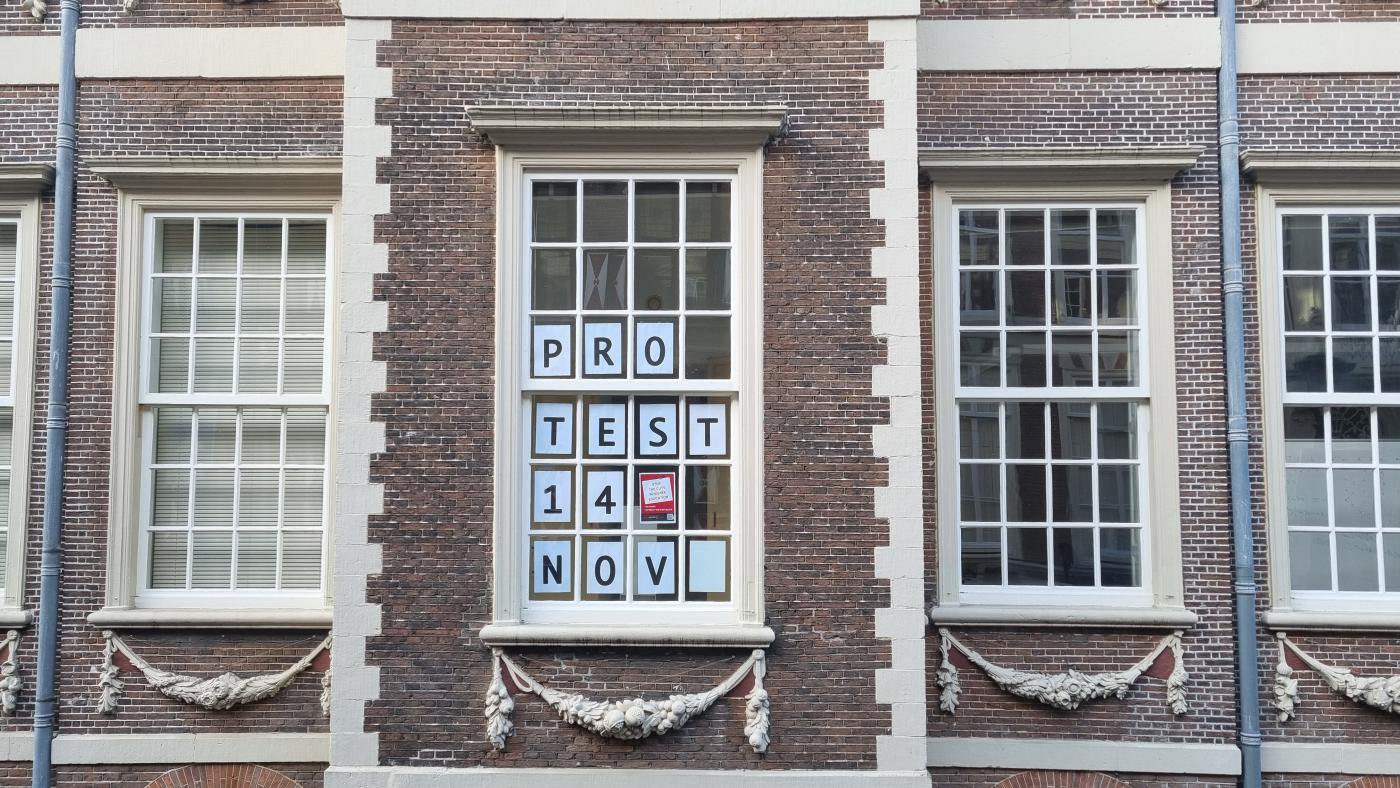'The stakes are high'
Why we are demonstrating on November 14

The announced one-billion-euro in cuts to higher education are not only unnecessary but reflect a disturbingly anti-science climate. The measures fit into the broader agenda of a government explicitly opposed to international openness and cooperation, as evidenced by the ongoing campaign against the international orientation of universities.
The rhetoric of “more Holland, less abroad” betrays a provincialism that is at odds with the challenges of our time and what should be a healthy, progressive knowledge society. It is clear that not only the future of universities but also that of the Netherlands as a knowledge economy is at stake.
The financial figures are well known and show that the cuts will be realized by draining the National Growth Fund and the Research and Science Fund. This is a short-sighted policy that will not only leave scars in the scientific and cultural fabric of the Netherlands but also undermine its economic future. The consequences are profound: recklessly eroding resources for research and education at a time when scientific innovation is crucial to solving complex issues is devoid of any rational necessity.
The impacts of climate change and the energy transition, increasing migration flows and the rise of generative AI, to name a few, are global issues that cry out for cross-border, scientific cooperation. It makes the announced policy all the more absurd. Especially at this time, we desperately need science – not in isolation, but in international collaboration – to understand and address global challenges locally. To that end, we must educate new generations of students equipped to take on these tasks. The Dutch business community is also expressing deep concerns about the cuts, as evidenced by the letter published by UNL (Universities of the Netherlands).
Our students, by the way, are also hit hard and put under even more pressure: the announced long-study fine is a perverse incentive and does not benefit study and development. The scholarship scheme is under pressure. The cuts also threaten the possibility of innovation in education, staff development and thus the quality of education. There is already through the grapevine of cancelling courses, limiting class time, less time for tutoring, and the like.
So, the stakes are high.
The announced budget cuts have major consequences, for the Netherlands and its universities, including Utrecht University. The package of measures (cuts and internationalization measures) will affect all parts of the university. The measures will affect the raison d'être of programs and thus the position of university staff and students. The measures also affect the position of researchers funded by the start-up and incentive grants, who are no longer sure of their appointment.
Moreover, the cuts are more than a budgetary measure. For years, universities were structurally underfunded for the work done in teaching and research. That structural problem was addressed by the previous government, but the necessary repair is now being reversed after only two years. It may become a death knell for some faculties or even universities as evidenced in this article.
Therefore, we cannot but to make our voices heard, loud and clear. I call on you as members of the university community to demonstrate en masse against this government and these measures. The national demonstration will take place on Thursday, November 14 in Utrecht and is an initiative of WOinActie and the labour unions FNV and AOb. More information can be found here. If you prefer the information in Dutch, click here.
See you on November 14!
Bald de Vries is a Professor of Interdisciplinary Legal Education in the Department of Law and is also the Academic Director of the Centre for Academic Teaching & Learning. He wrote this op-ed in a personal capacity, as a member of the UU staff.